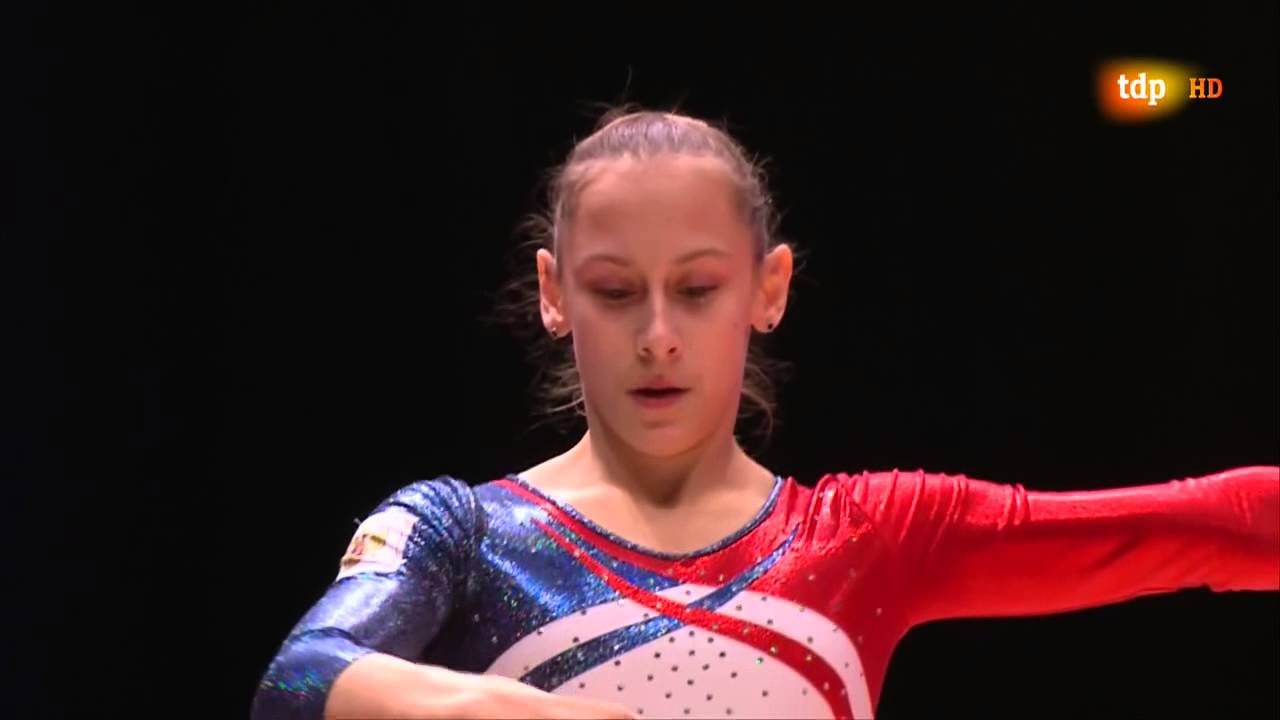Former Russian gymnast Maria Kharenkova, whose nationality switch was approved last week, said she hopes that competing for Georgia will finally allow her to go to the Olympics:
“I received this offer and thought about it a long time and, in the end, decided to take it. The things is that I had an injury, my shoulder was hurting, so I didn’t have competition results, I haven’t competed in a long time and I wasn’t invited to the Russian national team anymore. The head of the Georgian gymnastics federation called my coach and asked if he could make this offer. I will soon go to Batumi, to a Georgian competition, and then I’ll start preparing for the World Championships. Potentially, I want to qualify a spot to go to the Olympic Games. Right now I’m training in Russian and getting in shape. Of course, I’d want to compete for Russia, that’s my country, after all. But if I got such a chance, I have to use it.”
Kharenkova, a European beam champion and a silver AA medalist, was one of the candidates for the Rio team but an ankle injury took her out of the running. She came back strong in 2017 and won gold on floor, silver on beam and bronze in AA at the Russian Cup but was not put on the Worlds team. Later that year, she took bronze on beam and silver on floor at the Cottbus World Cup. Her last competition for the Russian team was DTB Pokal Challenge in the beginning of 2018 which wasn’t successful. A nagging shoulder injury meant the end to national team camp invites. At the end of 2018, she was invited to a short camp at Round Lake but was not put on the national team after that. While some Russian gymnasts receive help with treatments and injury rehabilitation for long periods of time, Kharenkova spent the past year at her home gym in Rostov-on-Don, trying to recover without the national team’s help.
Andrei and Valentina Rodionenko, the Russian national team coaches, both commented on the nationality switch and it seems that both have forgotten who Kharenkova is exactly. Andrei Rodionenko claimed that Kharenkova hasn’t been on the national team for the past three years and that he hasn’t seen her compete in a long time, so he can’t comment on her current competitive shape. As stated above, neither of the statements are true – Kharenkova was on the Russian national team a bit more than a year ago, went to a camp even more recently than that, and competed at a national competition where Rodionenko was present as recent as last week.
Valentina Rodionenko said to TASS:
“Maria hasn’t been on the national team, the girl is showing gymnastics not at the level that would fit the Russian national team. She was invited by Georgia and she exercised her right to join a new team, with which she can compete at World and European Championships and Olympic Games. She will be a leader of the new team, so we did the humane thing and didn’t block this path for her. We’ve had athletes leaving to compete for Azerbaijan and Belarus national teams, we aren’t really against it. But we don’t let go those who have prospects and those who we need”.
Support Gymnovosti on Patreon from only $1 a month and help us bring to you even more awesome gymnastics coverage!
Buy cool gymnastics-themed t-shirts, hoodies, pillows, phone cases, and more at our store on Teepublic!




Do we know what her ties are to Georgia (if any?) Under the new rules, there must be a relationship with the new country, if one has already had a FIG license with another country, right?
Technically, the FIG announced the residency requirement for a nationality change. Practically, there were no details on what exactly the residency requirement would be and how it would be checked and enforced. Kharenkova does not reside in Georgia. You could say that her tie to Georgia is being from another former Soviet republic. There’s a lot of migration between ex-Soviet republics and often there are special citizenship paths (for example, Russia has a special fast citizenship track for people born within the borders of USSR, whether before or after its break-up). So, people in that part of the world often see themselves connected to other ex-Soviet republics as it used to be one country not that long ago.
I think she has a good chance to represent Georgia at the Olympics.